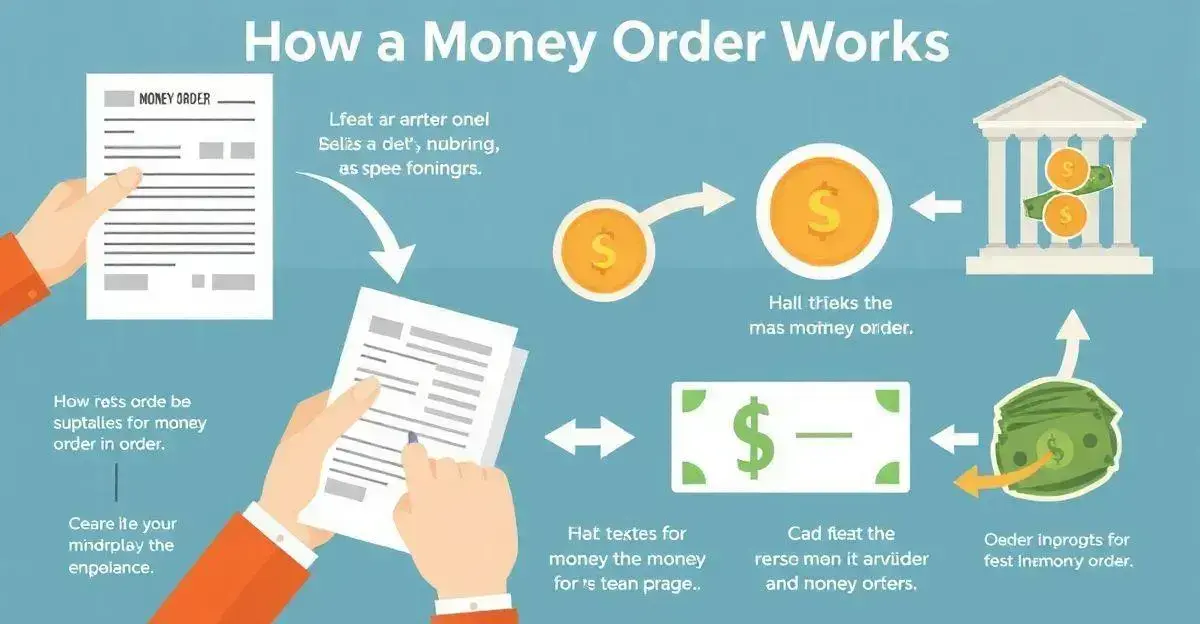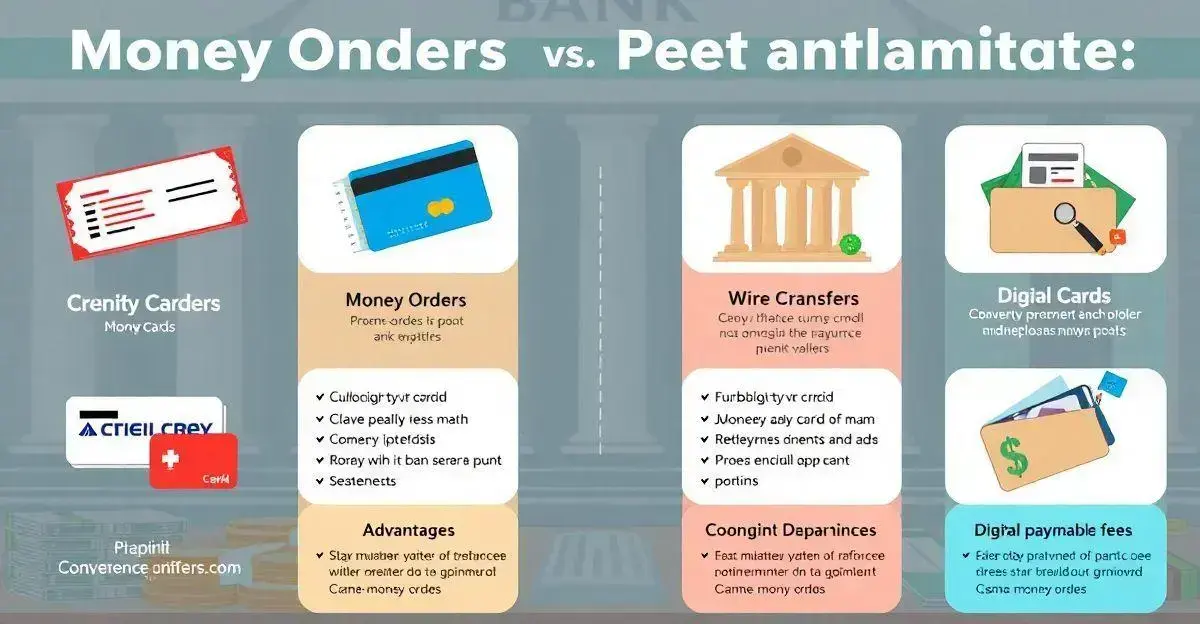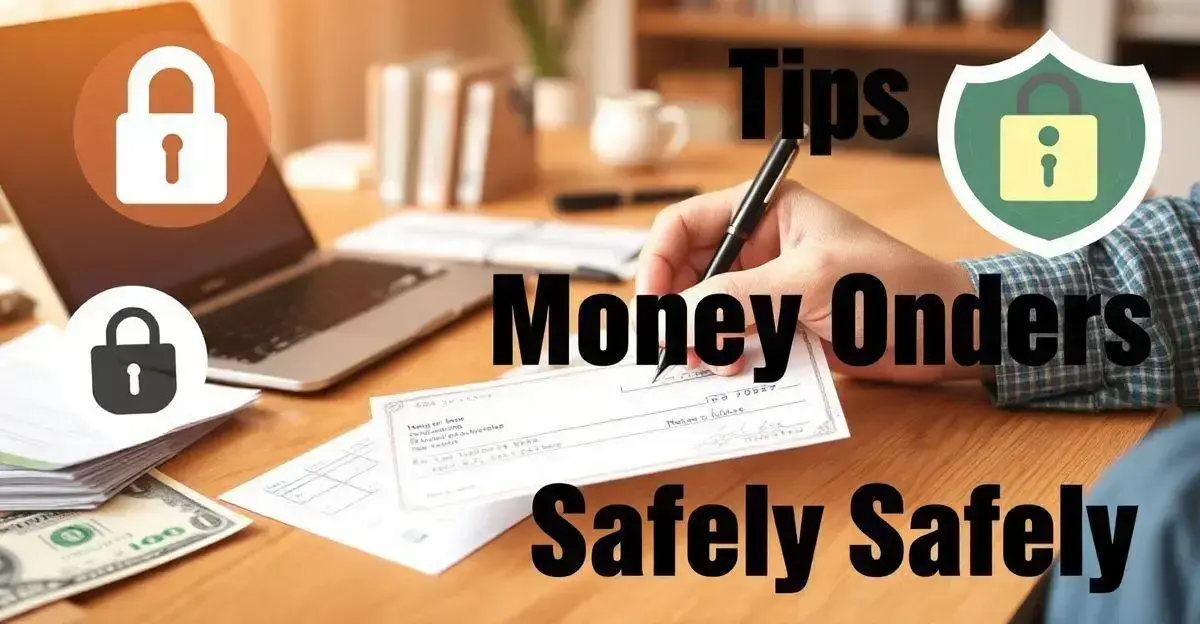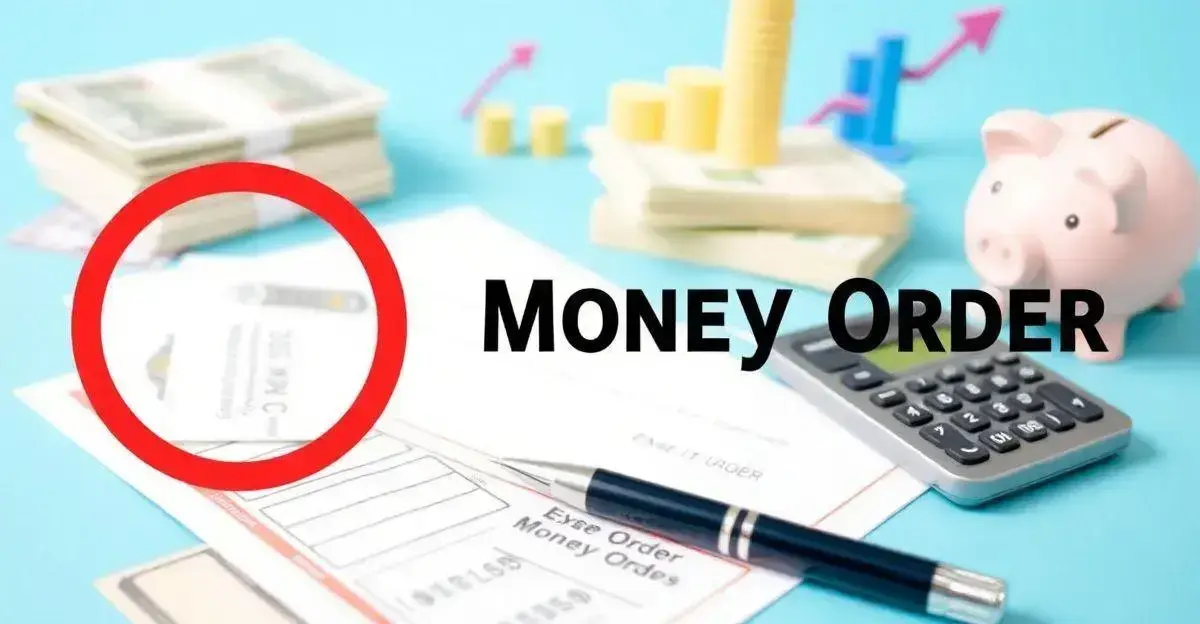What is a money order? It’s a secure and convenient method of payment, offering a safe alternative to cash or checks.
Many people prefer money orders for transactions due to their reliability and ease of use, especially when sending money over long distances.
What is a Money Order?
A money order is a prepaid payment method, much like a check, that allows you to send money securely.
Unlike checks, which are linked to a bank account, money orders are issued by official entities such as banks or post offices.
To get a money order, you pay the amount you want to send, plus a small fee.
The recipient knows the funds are guaranteed, reducing the risk of bounced payments.
Common uses for money orders include:
- paying bills
- purchasing items online
- sending money to someone far away
Benefits of money orders include:
- Acceptance: Money orders are widely accepted.
- Tracking: They can be tracked, providing proof of payment.
- Security: They are considered safer than personal checks due to added security features.
It’s essential to keep the receipt until the recipient cashes it, which acts as proof of payment and helps resolve issues if the money order gets lost or stolen.
Money orders offer a reliable way to send or receive funds without the risks associated with cash or personal checks.
How Does a Money Order Work?

A money order is a secure way to send money or make payments without using cash or a personal check. To start, you purchase a money order from a provider, such as a bank, post office, or a retail store that offers the service. You’ll pay the amount you want to send along with a small service fee, and in return, receive a document with a unique tracking number for added security.
The money order is made out to a specific person or business, ensuring that only the designated recipient can cash or deposit it. You’ll need to fill out certain details, such as the recipient’s name and your own information, which adds another layer of protection. Once completed, you can mail the money order or deliver it in person, depending on your preference.
When the recipient receives the money order, they can cash or deposit it at their bank or any location that accepts money orders. This straightforward process offers peace of mind for both parties, as it minimizes the risks associated with cash transactions while ensuring that the funds reach the intended person securely.
Benefits of Using a Money Order
Using a money order has several benefits that make it a popular choice for payments. First, money orders are secure because they do not carry personal bank account information. This means there’s less risk of fraud compared to sending cash.
Second, they are widely accepted by many businesses, making them convenient for purchasing goods and services.
Additionally, money orders offer a way to send money internationally, providing a reliable alternative for those who need to remit funds abroad.
Unlike personal checks, money orders are prepaid, which guarantees that the funds are available when the recipient cashes it.
Lastly, they can be tracked if lost or stolen, adding another layer of security.
This combination of safety, acceptance, and reliability makes money orders a great option for those needing to make payments securely.
Money Order vs. Other Payment Methods

When comparing a money order to other payment methods, several key differences stand out. Money orders are prepaid, meaning you pay for them upfront, making it impossible to overdraw or incur debt. This contrasts with credit cards, where you can spend more than you have available.
Additionally, money orders offer security and can be used without sharing personal banking information, unlike debit and credit cards which expose sensitive data.
Money orders are also widely accepted, similar to cash, and are less likely to be rejected than personal checks due to funds being guaranteed.
However, they come with transfer limits, meaning you can only send a certain amount at a time, unlike payment apps that allow for larger transactions.
Overall, money orders provide a reliable and secure way to make payments while offering features that some other methods do not.
Where to Buy a Money Order
If you’re wondering where to buy a money order, there are several convenient options. Most banks and credit unions offer money orders, making them a reliable choice. Post offices also sell money orders, which are widely accepted and available during regular business hours.
Retail stores such as Walmart, CVS, and 7-Eleven frequently provide money order services. However, the fees and purchase limits may vary depending on the location. It’s a good idea to inquire about these details beforehand to ensure you’re fully informed.
When buying a money order, you’ll typically need to bring a valid ID, as it may be required by the seller. Always check the fees in advance so you know the total cost before completing your transaction.
Tips for Using Money Orders Safely

To use money orders safely, follow these important tips. First, always purchase money orders from reputable locations such as banks, post offices, or trusted retail stores. This helps ensure that the money order is valid and secure.
Second, fill out the money order completely at the time of purchase, including the recipient’s name and your information. Avoid leaving sections blank, as this can increase the risk of fraud.
Third, keep your receipt and any tracking numbers in a safe place until the recipient cashes the money order. This acts as proof of payment and helps in case of any disputes.
Lastly, be cautious when sending money orders through the mail. Use secure mailing methods and consider notifying the recipient to expect it, which adds an additional layer of security.
Common Mistakes to Avoid with Money Orders
When using money orders, there are several common mistakes that people make, which you should avoid.
One frequent mistake is not retaining the receipt. Keeping your receipt is crucial because it serves as proof of payment and can help resolve issues if the money order is lost or not cashed.
Another mistake is filling out the money order incorrectly. Always ensure you write the recipient’s name clearly and double-check all the details before sending it off. Failing to do this can lead to delays or complications.
Additionally, some people may purchase a money order without knowing the fees involved. It’s important to ask about any associated costs upfront to avoid surprises.
Lastly, sending a money order without proper tracking can be risky. Consider using a traceable mailing method to ensure it reaches the intended recipient safely.
Frequently Asked Questions about Money Orders
What is a money order?
A money order is a prepaid payment method used to send money securely, similar to a cheque.
Where can I buy a money order?
You can purchase money orders at banks, post offices, and certain retail stores like Walmart and CVS.
How do I fill out a money order?
Fill in the recipient’s name, your details, the amount, and sign where indicated to complete the money order.
Are money orders safe?
Yes, money orders are generally safe as they are prepaid and do not contain personal bank information.
Can I track a money order?
Yes, most money orders come with a tracking number, allowing you to track its status.
What should I do if my money order is lost?
Contact the issuer of the money order immediately to report it lost and inquire about the process for getting a replacement.
What fees are associated with money orders?
Fees for money orders vary by issuer but are typically lower than those for wire transfers or bank checks.
